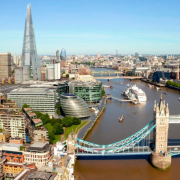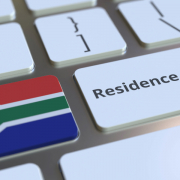Not Sure What Visa To Get For Mauritius? Here Are Some Options
/in Archived, News /by xp-adminThis vibrant snapshot is what makes Mauritius the melting pot of the African continent. The fact that it has turned into a modern-day way station on a digital trade route, further sets it apart as a prime destination for professional individuals.
With a stable finance sector, a strong tourism industry and a booming economy that has weathered the pandemic-induced storm, the country has established itself as a worldwide business hub for skilled foreign nationals. The Mauritian government, in turn, has systematically reviewed immigration requirements to make visas and residence easier to come by.
The year-round beach appeal of Mauritius has drawn many South Africans to the island country. With so many visas to choose from, they often find themselves unsure of which one to apply for.
Premium Visa
A premium visa offers individuals a lot of freedom in Mauritius. Not only is it valid for a 12-month period, but it can even be renewed beyond that. This visa is primed for individuals who wish to stay in the country while maintaining the luxury of working when and where they want, like tourists, retirees or professionals working remotely. The major selling point of the premium visa is that there are absolutely no processing fees applicable.
Premium Visa Requirements:
- Must produce proof of your intentions in Mauritius (purpose of visit, etc.)
- Have sufficient travel and health insurance for the endurance of your stay
- Must not enter the Mauritian labour market
- Your primary source of income or place of work/business, must be outside of Mauritius
Long Stay Visa
This visa option will enable non-citizens to stay in Mauritius for a consecutive period of 10 years. As with the premium visa, a long stay visa is renewable if the visa criteria are adhered to. A further attraction is that the visa also allows for dependents to accompany the main applicant.
Long Stay Visa Requirements:
- To be eligible, applicants must have acquired an apartment for a price exceeding USD 500,000
- The apartment must form part of a building complex that has at least two floors above ground level
Residency through occupation permits
For those seeking to make the move to Mauritius more permanent through a longer residency option, it is wise to ask yourself what you plan to do in the country. The country offers residency by means of investment, profession, retirement or property acquisition.
Residency for entrepreneurs and freelancers
For businessmen and high-profile entrepreneurs, this visa allows them the opportunity to obtain residency in Mauritius for 10 years. They can provide professional services to local and international clients while residing on the island. The occupation permit is renewable, but the individual must supply proof that their business met certain income criteria as a sustainable business.
Permit Requirements:
- You must provide at least two letters of intent from local clients.
- Min investment – USD 35,000
- Application fee – MUR 20,000
Residency through investment
Investors hoping to diversify their portfolio by investing into a business activity on the island, can get the best of both worlds when they seek residency through investment.
Permit Requirements:
- Min investment – USD 50,000
- Application fee – MUR 20,000
Residency by profession
If you have a unique set of skills and qualify on merit of those skills, you are halfway there. You must find a job in Mauritius that meets the minimum salary threshold.
- Employees in these industries must earn a basic monthly salary of no less than MUR 30,000: pharmaceutical manufacturing, fund accounting, business process outsourcing (BPO), and information and communication technologies (ICT).
- For all other professions, employees must be offered a minimum basic monthly salary of at least MUR 60,000.
Your employer in Mauritius must submit a contract of employment with your application, which will cost you an application fee of MUR 20,000.
Where hopeful professional non-citizens have secured employment and they meet the above criteria, Mauritius will issue a 3-year renewable Occupation Permit, after which you can apply for a 20-year Permanent Residency Permit if you have earned a MUR 150,000 monthly salary for the entire 3-year period.
After having held residency in Mauritius for a period of three years and meeting specific criteria, you can apply for a Permanent Residency Permit (PRP). A PRP is valid for 20 years and offers permit holders absolute freedom to roam the island and to live as though citizens.
The visa or permit you choose will have an impact on your stay on the island, specifically where visa requirements must be adhered to in order for the permit or visa to remain valid. With so many options available to hopeful travellers, it is important to engage an immigration specialist to assist with the visa or permit application process.
Need help obtaining a visa?
Xpatweb is the largest independent work permit and immigration provider in South Africa offering a bespoke and comprehensive service to corporates and professionals.
The team consists of experienced and highly educated individuals who share a passion for specialised solutions in the expatriation and international mobility sector. We aim at providing our customers with the best personalised solution possible.
As a team, Xpatweb remains up to date on all new developments within the expatriation and international mobility trends worldwide. Maintaining close relationships with our clients and organisations allows us to provide the best possible customised business solutions and services.
Speak to one of our experts today to help you obtain the correct visa for your journey in Mauritius.





